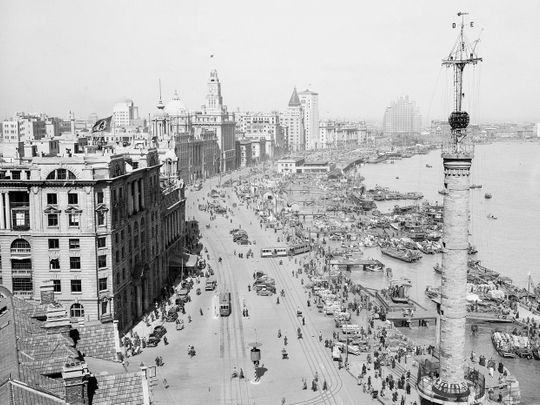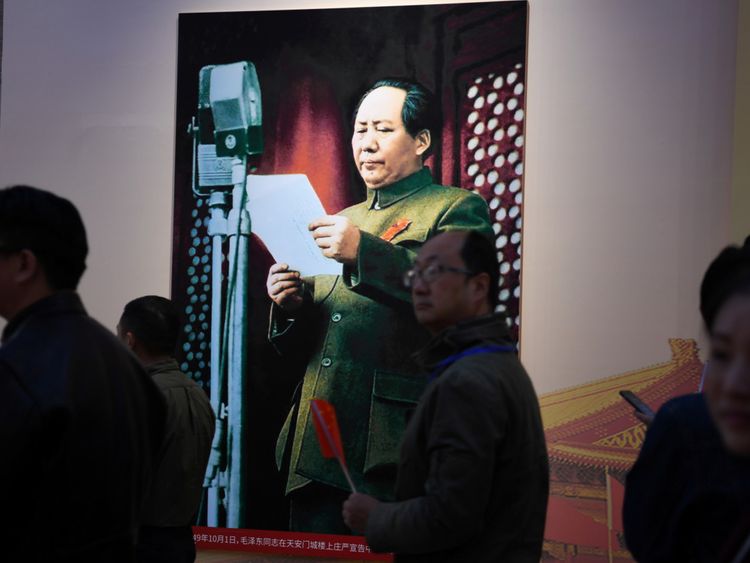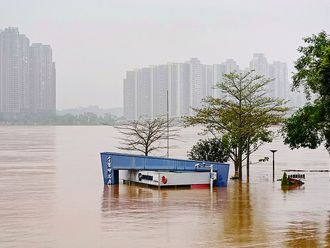
Beijing: China marks 70 years of Communist rule next week, with a massive military parade in Beijing anchoring celebrations of its emergence as a global superpower, despite a damaging year of trade tensions with the US and pro-democracy unrest in Hong Kong.
The anniversary is meant to showcase China’s extraordinary rise from the ravages of war and famine to a modern, powerful nation state whose economic and military muscle is viewed by many with increasing concern. The country looks very different from when the Communist Party seized power.
Here are some of the key ways in which the country - and citizens - have changed since the PRC was founded on October 1, 1949:
City living
Some 70 years ago, the vast majority of Chinese people were rural, with just 10 per cent of the population residing in cities.
By 2019, China is a country of urbanites, with at least six megacities - those with a population of 10 million or more - and about 60 per cent of the population live in cities. More than 100 Chinese cities have a population of more than one million people.
Beijing has tripled in size in the last 50 years, according to the UN.
A building frenzy has transformed the country’s landscape in three decades; five of the tallest buildings in the world are now on the mainland, and about half the cement used every year is poured in China.
Authoritarian state
The past 70 years have been bookended by the country’s two most recognisable frontmen: founder Mao Zedong and current leader Xi Jinping.
Mao had a chaotic reign, with tens of millions starving to death during his Great Leap Forward and more turmoil during the Cultural Revolution before he died in 1976.
Xi, 66, has tightened his own grip on power, with state media building a culture of personality around him and the rubber-stamp parliament changing the constitution so he can rule indefinitely.
New world order
The Soviet Union and East Germany were among a small number of countries to recognise the PRC in 1949.
But despite a slow start - and years where the country was closed to the outside world - the China of 2019 is a major global power and the world’s second-largest economy.
Beijing’s economy took off after joining the World Trade Organisation in 2001, and recent moves such as the Belt and Road trade infrastructure initiative look to extend influence further across Asia, Africa and even into Europe.
China has also been wielding that influence to diminish the number of countries that officially recognise Taiwan, which has governed itself since 1949 but China still views as its territory.
Onliners and spenders
There were 829 million internet users in China at the end of 2018, making it the world’s biggest internet market.
Of these, 817 million use mobile phones to surf the net - a huge 98 per cent of total netizens - making it also the biggest smartphone market in the world.
Internet user numbers have skyrocketed from 298 million 10 years ago.
China is also the world’s largest online retail market. Its biggest annual shopping bonanza, Singles Day, set a new record in 2018 with $30.8 billion spent.
But they have to navigate the web within the “Great Firewall” of censorship blocking access to certain foreign websites such as Facebook, Twitter and several Western news outlets.
On the road
In 1949, there were about 50,000 cars in China.
Today there are 409 million drivers, according to government figures, with around 32 million more cars added to the total tally in 2018 alone (roughly the number of cars in Britain).
But this army of new drivers has created problems in China’s crowded cities, including heavy congestion and restrictions on new vehicles getting license plates.
Titles and penalties
China is home to the world’s longest sea bridge (Macau-Zhuhai), the highest bridge (Guizhou), the largest high-speed rail network, the biggest aquarium and of course, the longest wall.
With a population of 1.4 billion people, it is the world’s biggest car market, the biggest pork eater, the biggest consumer of tobacco - and has more hospitals than any other country.
One title it is less likely to shout about is the dubious honour of being the country with the most death sentences carried out every year.
According to Amnesty International, China is the world’s top executioner, with thousands believed to be killed and sentenced to death each year.













